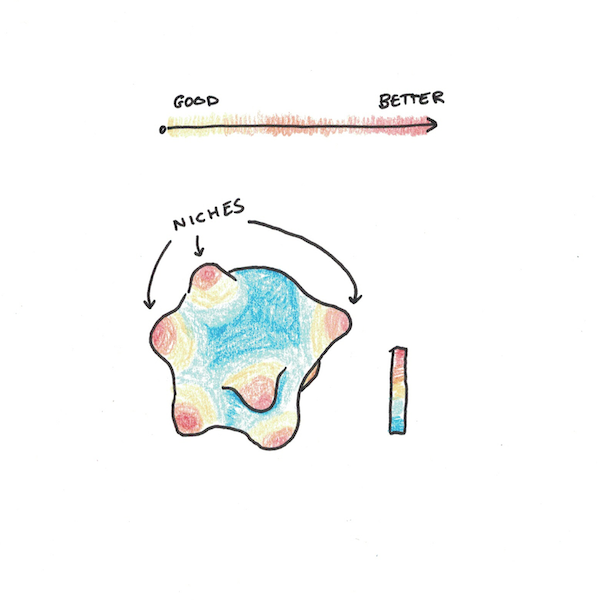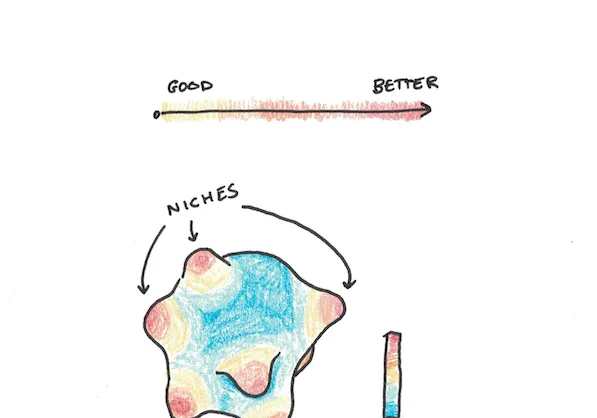I spend a lot of time thinking about how to get better at things. I agree with Aristotle that excellence itself, rather than money or status, is the aim worth pursuing.
Recently, I’ve been thinking that the concept of excellence itself hides a subtle distinction. That is, there are different ways something can be considered great, and knowing which makes a big difference in how you pursue it.
The first is to think of excellence as a universal standard. To get 99% is more excellent than 95%. A+ beats A. Selling a million copies beats a hundred thousand. In each case, we line up everything and measure them against a single yardstick.
An alternative way to think of excellence is like a niche. The evolution of life is like this. A whale isn’t better than a butterfly in any meaningful way. They’re pursuing very different strategies to survive. But to have survived this long, they’re both exquisitely designed — itself a kind of excellence.

Excellence: One or Many Dimensions?
The distinction can be phrased mathematically. A universal standard uses a single dimension to rank everything. Niches, in contrast, can be seen as occupying a high-dimensional abstract space. Every degree of freedom, from body size to blood type, feathers or scales, another possible dimension. Most of the space of possibilities is a desert — nothing useful lives there — but the size is so vast that there are many interesting oases of possible life.
Now what about the excellence you’re trying to pursue? Is it a ranking or a niche?
Taken as a whole, our working lives feel more like niches. There are tens of thousands of professions, each with numerous sub-specialities. Diversity rules the day.
Zoom in, however, and the dimensions of competition start to shrink. For many professions, the path to success is extraordinarily narrow, as candidates in a space are judged on a few limited benchmarks.
Thus the big-picture of life tends to be many-dimensional and have lots of different niches, but the more specific the pursuit, the more its relevant dimension of competition starts to dominate. For highly-defined fields, success may come down to a single metric where all aggressively try to outcompete the others.
#self-improvement #learning #self #philosophy #ultralearning #deep learning
